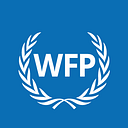Major investment in evaluation spotlights role of science, AI and evidence collaboration
WFP Director of Evaluation, Anne-Claire Luzot reflects on the World Food Programme’s role in a global evidence synthesis movement, and why it matters in regaining SDG momentum
In the grand context of the Summit of the Future and the UN General Assembly, a side event featuring a specialised coalition of evidence advocates might not be expected to grab that much attention.
Yet, headlines about the New York gathering continue to roll in with the event precipitating a series of articles in Nature magazine and others on the game-changing potential of AI to speedily synthesise and deliver the latest evaluation evidence to decision-makers.
While the injection of more than US$70 million by the Wellcome Trust and UK Research and Innovation (UKRI) undoubtedly turned heads on 21 September, WFP’s Office of Evaluation (OEV) has been working behind the scenes as a key member of the Global SDG Synthesis Coalition since its early beginning.
WFP is among the Coalition’s strategic partners, joining forces with 40 other UN agencies, 50 Member States, multilateral development banks and others to contribute to a huge pool of evidence, synthesised in line with the Sustainable Development Goals (SDGs).
Since WFP joined the Coalition in 2022, the number of partners, various evidence sources across topics, and global interest in the use of evidence for SDG decision-making has escalated.
What started off as a commitment from only a few UN agencies to make available their evaluations, have grown into a multi-actor initiative consolidating vast amounts of evidence sources for policymakers to learn from, scale up and course correct programmes and policies.
But why this strong focus on evaluation evidence now?
With six years to go, the SDGs have fallen drastically behind target, with many analysts pointing to an inability to objectively understand why progress is not being made, and how to improve. At the same time, we are producing vaster amounts of evidence at greater amounts of speeds than ever before.
Over and above supporting the SDG Synthesis Coalition, WFP has been at the forefront of initiatives to ensure decision-making at all levels is based on evidence, as a key objective of its Evaluation Policy 2022.
OEV supported the adoption, in 2023, of a UN Resolution on strengthening country-led evaluation, and has been prominent in strengthening a culture of evaluation at national level.
Equally, OEV’s impact evaluation team is working with partners across the humanitarian-development nexus, including USAID and the World Bank, to generate rigorous evidence on topics like climate change and resilience, cash-based transfers and school-based programmes.
OEV has also invested in an initiative to facilitate a more effective and efficient use of evidence using natural language processing and generative AI technologies. AI promises greater agility in summarizing findings or surfacing insights on virtually any topic, with ultimate advances on learning from existing evidence.
Amidst times of crises and cost-consciousness, we need to be prudent about the evidence we do have, while working smarter, and more collectively towards consolidating this evidence into lessons that can action better policies for the future. This is already evident in the context of an updated WFP corporate knowledge management strategy, connecting the dots between different evidence generation sources in the organization.
And with the aid of science and technology, the WFP Office of Evaluation is proud to also play this role in the global arena: supporting evidence synthesis that can guide us towards making better decisions, and learning from mistakes.
Watch the side event Towards 2030 and beyond: Accelerating the SDGs through access to evidence on what works on UN News and read the Nature article about the initiative.
